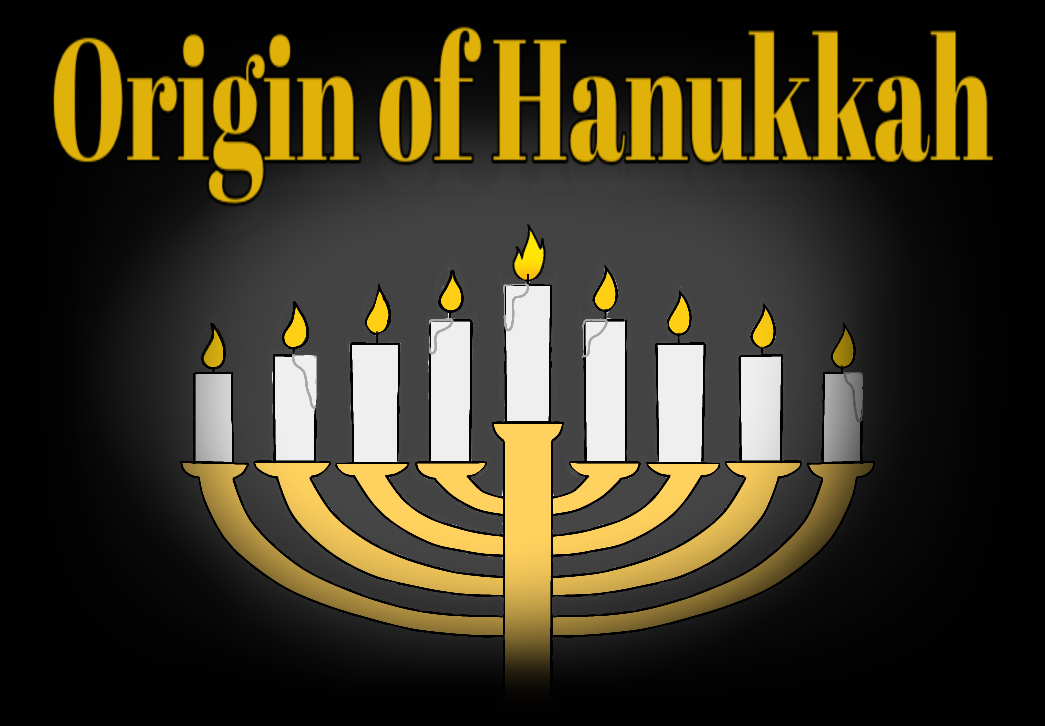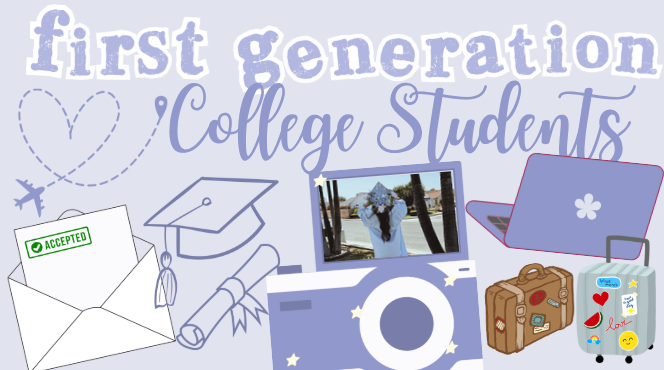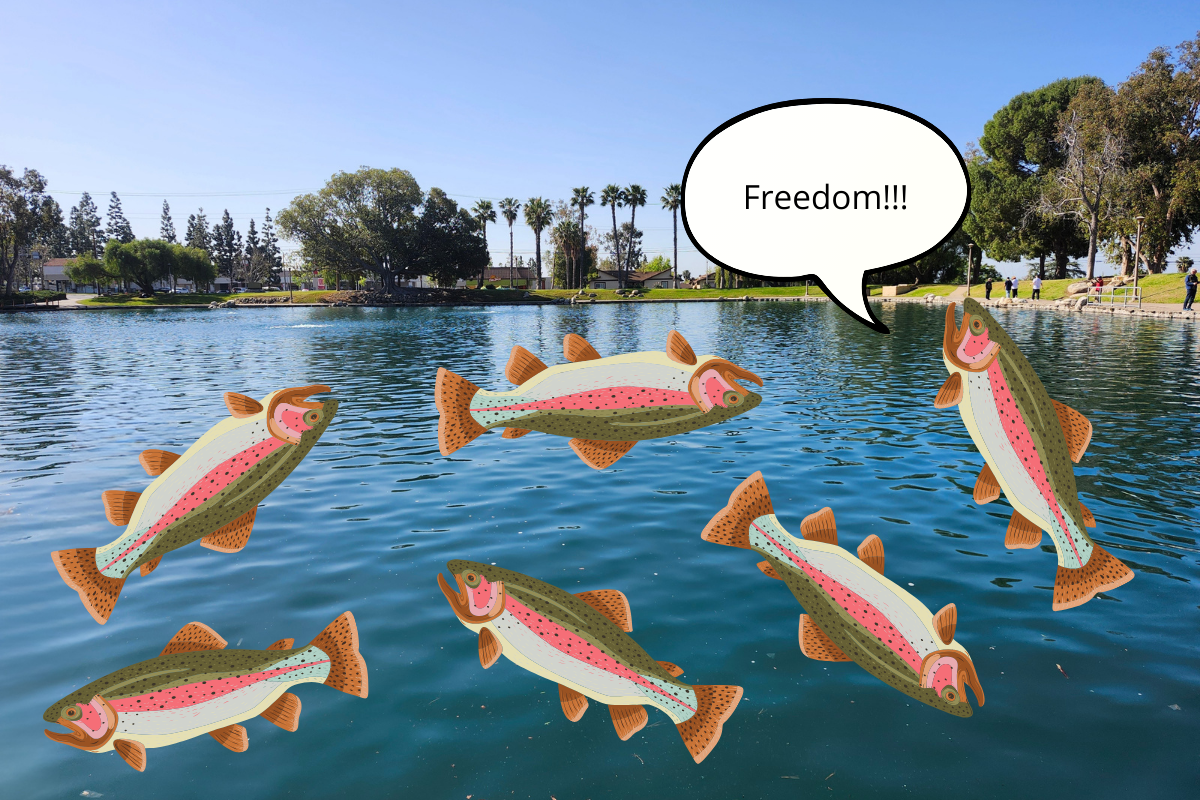Hanukkah is a holiday primarily celebrated in Jewish families and communities, also known as Channukkah. This holiday lasts for 8 days each year. Hanukkah starts on the 25th day of Kislev according to the Gregorian calendar. Since the Jewish calendar is Gregorian and lunisolar, the start date of Hanukkah changes yearly. However, the holiday will always occur between late November to mid-December. This year, it started on December 7th and will end on December 15th. This holiday serves as a reminder and celebration of the triumph of light over darkness, religious freedom, and the resilience of the Jewish people in the face of adversity.
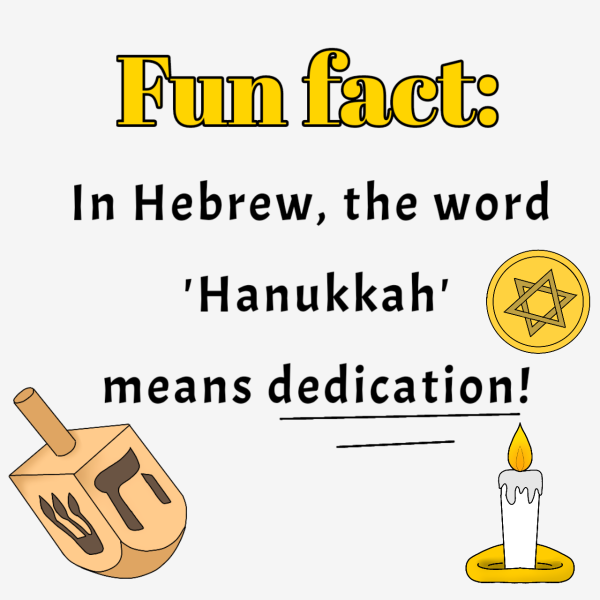
A Huntington Beach High School (HBHS) sophomore, Landon Luxemburg; who is both ethnically and religiously Jewish says, “Hanukkah, also known as the Festival of Lights, commemorates the Jewish Maccabees’ victory over the Seleucid Greeks and the rededication of the Second Temple in Jerusalem.”
In 175 BC, King Antiochus, the current ruler of Greece at the time, outlawed the practice of Judaism because he wanted his subjects to worship the Greek gods instead. Upon the Jewish people’s (Maccabees’) refusal to obey this law, King Antiochus had his troops destroy the temple of Jerusalem. It was not until 164 BC that The Maccabees successfully defeated the king and his troops; they found only a jar of oil in their ransacked temple. The jar seemed to contain only enough to light the menorah for one night. However, according to the Talmud (one of the ancient texts of Judaism), a miracle happened and the oil kept the menorah lit for eight days, enough for the Maccabees to seek out more oil.
Alia Pasternak, a junior at HBHS, said, “A candle is lit every night on Hanukkah, or better known as a Menorah, which has 4 candles on either side and the Shamash in the middle. The Shamash, the middle candle, is lit first, then lights the candles, starting from the newest candle and going backward.”
The most traditional and well-known way to celebrate Hanukkah is by lighting the Menorah. Those who celebrate Hanukkah light a candle on their menorah each night, adding one candle for each successive evening. After the candle is lit, two blessings are said. The first blessing is said for the candles, while the second is thanks for the miracle.
A junior at HBHS, Benji Gamarnik, said, “Hanukkah is celebrated by exchanging presents, eating foods cooked in oil such as donuts and traditional Jewish latkes, playing dreidel, and most importantly, lighting candles every night for 8 nights!”
The purpose of this holiday is more to honor the miracle and the defeat of King Antiochus, rather than exchanging gifts; many families have adopted this tradition. Now, Hanukkah festivities include meals, singing songs, traditional dreidel games and some even decorating their houses!
Those who celebrate Hanukkah typically read Hebrew scriptures, recite psalms, sing special hymns, have daily prayers, and more. Some households and synagogues read Antiochus’s scroll, an early medieval account of Hanukkah. There also may be public readings of the Torah, one of the Hebrew bibles.
A rather more well-known and important part of Hanukkah is the spinning tops, otherwise known as dreidels.
Ben Chanin, a senior at HBHS, said, “The Jews [would] disguise their faith [from the Greeks] so when the guards checked to see if they were worshiping [the Greek gods,] they would pretend to play with dreidels (which is why we play this game on Hanukkah).”
Pasternak said, “On the dreidel, the Hebrew letters Nun, Gimmel, Hay, and Shin, form an acronym for the Hebrew saying Nes Gadol Hayah Sham, which means ‘a great miracle happened there.’ [Nowadays] the dreidel is played on Hanukkah with the prize of gelt (chocolate coins).”
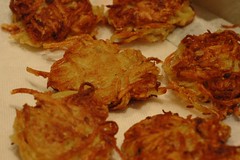
Photo credit: Sarah Twichell, Flickr Creative Commons
As the main point of Hanukkah is to honor the long-lasting oil, a lot of oily and fried foods are consumed during this holiday, as a reference to the eight days the one jar of oil lasted after King Antiochus and his troops were defeated. Some of these foods include but are not limited to latkes, kugel, brisket, and sufganiyot. All of which are traditional, fried, foods that are commonly eaten on Hanukkah.
Hanukkah commemorates a story of faith, resilience, and religious freedom of Judaism that emerges after defeating the Greeks. Hanukkah is a wonderful celebration of light and the power of miracles and continues to remind people of perseverance and the Jewish victory of light over darkness. Happy Hanukkah to all, a wonderful celebration of light, miracles, and history.


